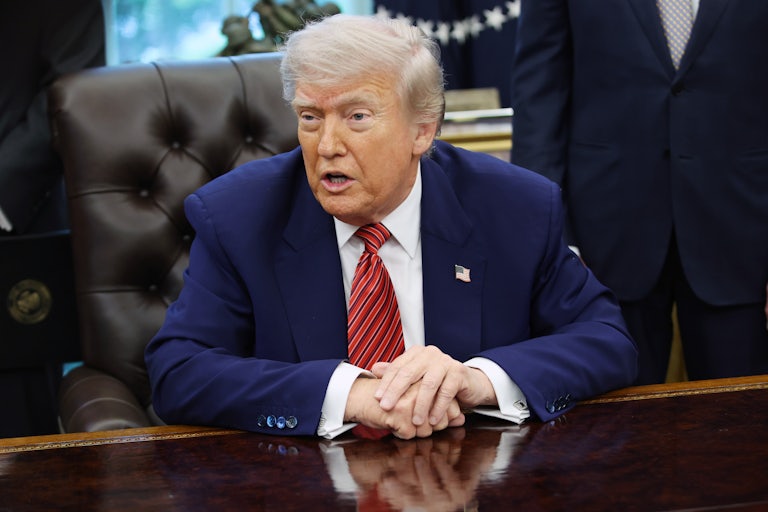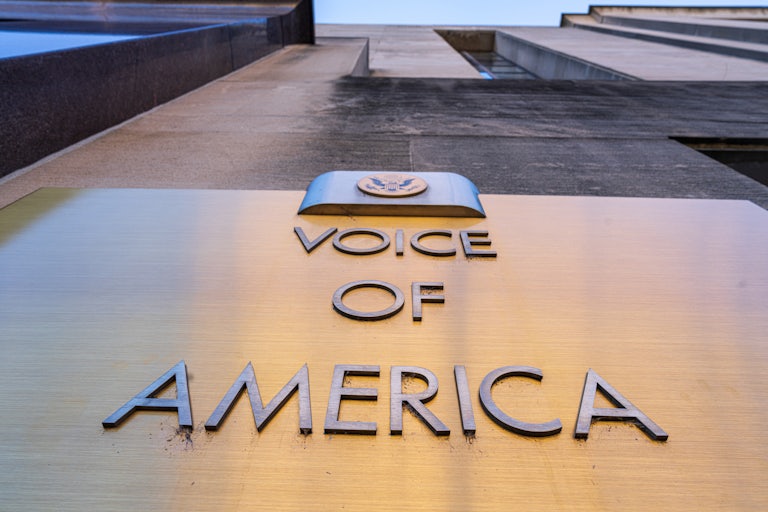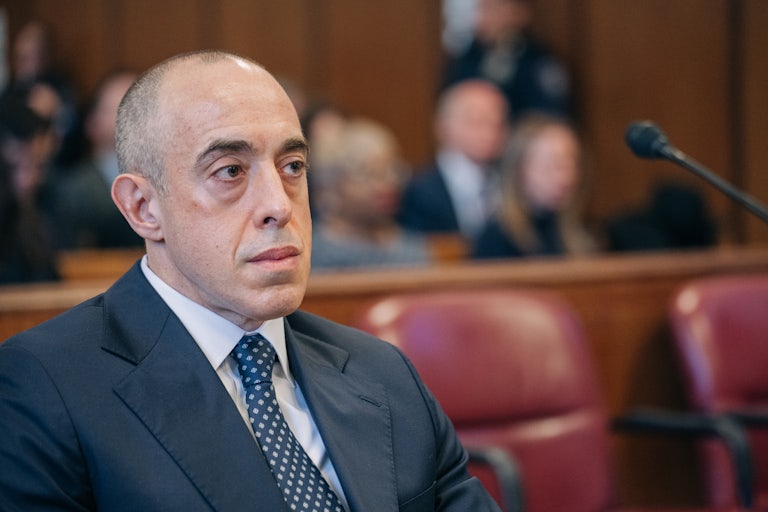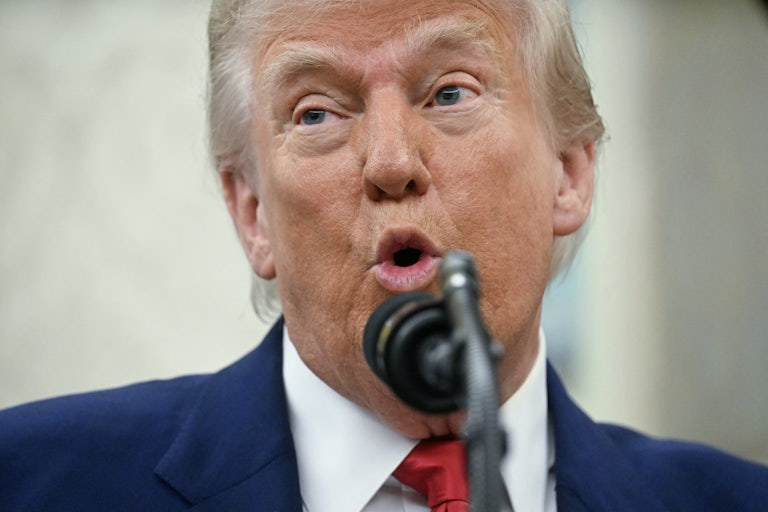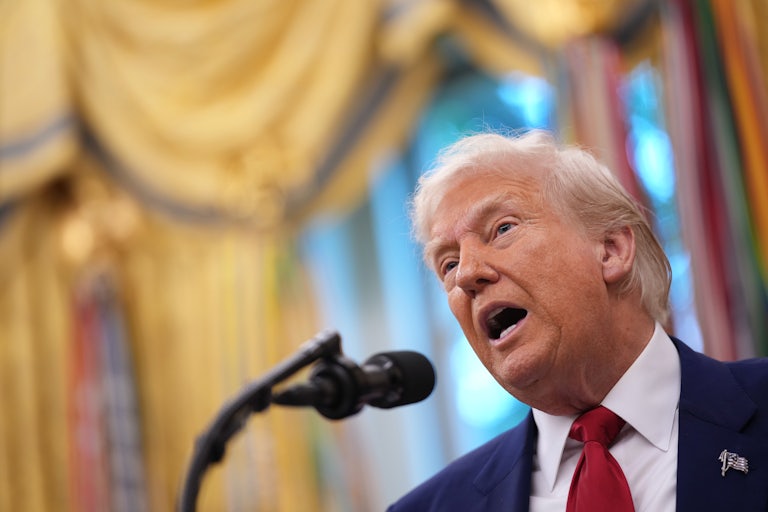Trump Just Invented an Outcome in His Lawsuit Against Pulitzer Board
A judge ruled the case could proceed. Donald Trump issued his own ruling.
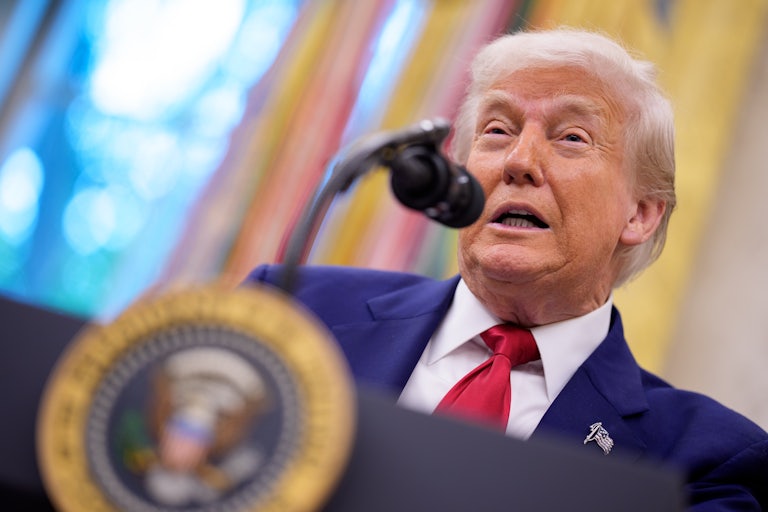
The president is trying to overstep the judiciary in his quest to defang America’s newsrooms.
On Truth Social late Wednesday, Donald Trump claimed that his defamation lawsuit against the Pulitzer Board had forced the journalism association to rescind an award they had given to The Washington Post and The New York Times in 2018 for investigating Russian interference in the 2016 presidential race and its ties to Trump’s campaign.
But in reality, a Florida court had simply allowed the case to progress.
“BREAKING! In a major WIN in our powerful lawsuit against the Pulitzer Prize Board regarding the illegal and defamatory ‘Award’ of their once highly respected ‘Prize,’ to fake, malicious stories on the Russia, Russia, Russia Hoax, by the Failing New York Times and the Washington Compost, the Florida Appellate Court viciously rejected the Defendants’ corrupt attempt to halt the case,” Trump wrote.
“They won a Pulitzer Prize for totally incorrect reporting about the Russia, Russia, Russia Hoax,” he continued. “Now they admit it was a SCAM, never happened, and their reporting was totally wrong, in fact, the exact opposite of the TRUTH.
“They’ll have to give back their ‘Award.’ They were awarded for false reporting, and we can’t let that happen in the United States of America,” the president said. “We are holding the Fake News Media responsible for their LIES to the American People, so we can, together, MAKE AMERICA GREAT AGAIN!”
In 2021, Trump contacted the Pulitzer Board asking them to “strip” the country’s highest journalism honor from the teams that had investigated him. After a thorough and independent review of the stories, the board determined that the articles were verifiably accurate. It rejected Trump’s request on the basis that the “the separate reviews converged in their conclusions: that no passages or headlines, contentions or assertions in any of the winning submissions were discredited by facts that emerged subsequent to the conferral of the prizes.”
But Trump took issue with that language. In reaction, he sued 20 members on the Pulitzer Board, claiming that the statement defending the award amounted to defamation.
Three years later, in a seven-page opinion issued Wednesday, Florida’s Fourth District Court of Appeal ruled that the case could move forward—despite protestations from the defendants that this would violate due process and that Trump’s expanded presidential immunity prohibited such a suit. In the opinion, the appeals court wrote that “such privileges are afforded to the President alone, not to his litigation adversaries,” noting that only Trump could assert his immunity privileges and that he had not done so in this case.
“The President’s lawsuit is an attempt to intimidate the press and drive a political narrative,” a spokesperson for the Pulitzer Board told The New Republic. “The Pulitzer Board takes seriously its mission to honor excellence in reporting, literature, history, and the arts, and we will continue our staunch defense of journalism and First Amendment rights.”
This story has been updated.


